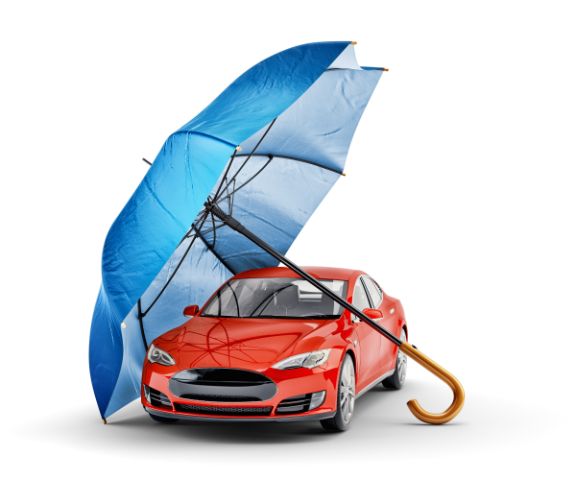Petrol/Diesel vs CNG: Which Car Fuel Suits You Best?
Petrol/Diesel vs CNG: Which Car Fuel Suits You Best?

Purchasing a car is always an exciting step, but the decision goes far beyond choosing the brand, colour or comfort features. The fuel type, whether petrol, diesel or CNG, can greatly affect your long-term expenses and driving experience. From fuel efficiency to maintenance and emissions, your choice will influence how economical and practical your car remains over the years. This blog will give you a complete comparison of CNG, petrol and diesel cars to help you decide which option best suits your needs.
Petrol vs Diesel vs CNG: Key Factors to Consider
When comparing fuel types, there are some crucial aspects that you must evaluate: performance, cost, efficiency and environmental impact.
1. Performance
• Petrol cars are known for smooth pick-up, quicker acceleration and reliable performance.
• The initial acceleration of diesel cars may feel slower, but they deliver excellent top-end performance, especially on highways.
• CNG cars generally offer the lowest power and acceleration. The smaller engine capacity and CNG kit limit performance compared to petrol and diesel.
2. Fuel Cost and Ownership
• CNG is the most affordable fuel option in India, largely due to its domestic production. It offers the lowest running cost, though CNG cars are slightly costlier than petrol ones.
• Diesel cars are costlier upfront but provide moderate running costs, making them suitable for heavy usage.
• Petrol cars are the most affordable to purchase but have the highest running costs due to expensive fuel.
3. Efficiency
• CNG cars deliver the highest mileage, making them the most fuel-efficient option.
• Diesel cars provide better mileage than petrol, suitable for long-distance travel.
• Petrol cars have low mileage and are usually less fuel-efficient compared to the other two.
4. Maintenance
• CNG cars require more frequent maintenance due to the CNG kit and pressure systems.
• Petrol cars are relatively low-maintenance and have moderate servicing costs.
• Diesel cars have higher maintenance costs and pricier spare parts but boast a longer engine life.
5. Boot Space and Comfort
• CNG cars lose some boot space because of the cylinder installed in the trunk.
• Petrol and diesel cars usually offer full boot capacity, making them more practical for travel.
• In terms of driving comfort, petrol cars are the smoothest and quietest, while diesel cars are noisier and have more vibration. CNG cars provide a balanced but slightly less powerful experience.
4. Environmental Impact
• CNG cars are the cleanest option, releasing significantly fewer harmful gases.
• Diesel cars emit the most greenhouse gases due to higher carbon content.
• Petrol cars are less polluting than diesel but not as clean as CNG.
It’s important to note that emissions also depend on vehicle age, engine condition and maintenance.
Petrol, CNG or Diesel Car: Which is Better?
The right choice depends on how you plan to use your car:
• Choose a petrol car if you drive mainly within the city, prefer lower purchase costs and want smoother performance.
• Choose diesel if you frequently travel long distances and want fuel efficiency despite a higher purchase price.
• Choose CNG if you want the cheapest running cost and a greener option, provided you live in a city where CNG stations are available.
Remember: Whether you choose petrol, diesel or CNG four-wheeler, having a proper car insurance plan is essential to safeguard against accidents, damage or theft.
Conclusion
There is no universal answer to whether petrol, diesel or CNG is better—it entirely depends on your budget, usage and driving needs. Consider not just immediate costs but also long-term expenses, maintenance and sustainability before making a purchase decision. Also, obtain a car insurance policy to secure your investment.
FAQs
1. Which fuel type is cheapest in the long run?
CNG offers the lowest running cost, provided CNG stations are accessible in your area.
2. Do CNG cars affect performance?
Yes, compared to petrol or diesel cars, CNG cars may offer slightly lower acceleration and power.
3. Is it true that diesel cars are being phased out?
With stricter emission norms, diesel cars face more regulations, but they are still available in the market.
4. Should I buy diesel or petrol for long drives?
Diesel cars are more suitable for long-distance driving due to their mileage and torque.
5. Which option is better for city driving?
Petrol and CNG cars are better suited for city driving, while diesel is more practical for long highway runs.
Disclaimer: The above information is for illustrative purpose only. For more details, please refer to policy wordings and prospectus before concluding the sales.
RELATED ARTICLES
Petrol or Diesel: Which One Should You Choose?!
CNG Full Form in Cars: Meaning, Usage and Benefits
Factors that Influence Car Insurance Premium for SUVs ...
Power Petrol vs Normal Petrol: Key Differences
CNG Fitting Cost in India: Full Guide Before Conversion










 Health Insurance
Health Insurance  Travel Insurance
Travel Insurance  Car Insurance
Car Insurance  Cyber Insurance
Cyber Insurance  Critical Illness Insurance
Critical Illness Insurance
 Pet Insurance
Pet Insurance
 Bike/Two Wheeler Insurance
Bike/Two Wheeler Insurance  Home Insurance
Home Insurance  Third Party Vehicle Ins.
Third Party Vehicle Ins.  Tractor Insurance
Tractor Insurance  Goods Carrying Vehicle Ins.
Goods Carrying Vehicle Ins.  Passenger Carrying Vehicle Ins.
Passenger Carrying Vehicle Ins.  Compulsory Personal Accident Insurance
Compulsory Personal Accident Insurance  Travel Insurance
Travel Insurance  Rural
Rural 











